Modeling Arrays for Repeated Addition Equations
Image
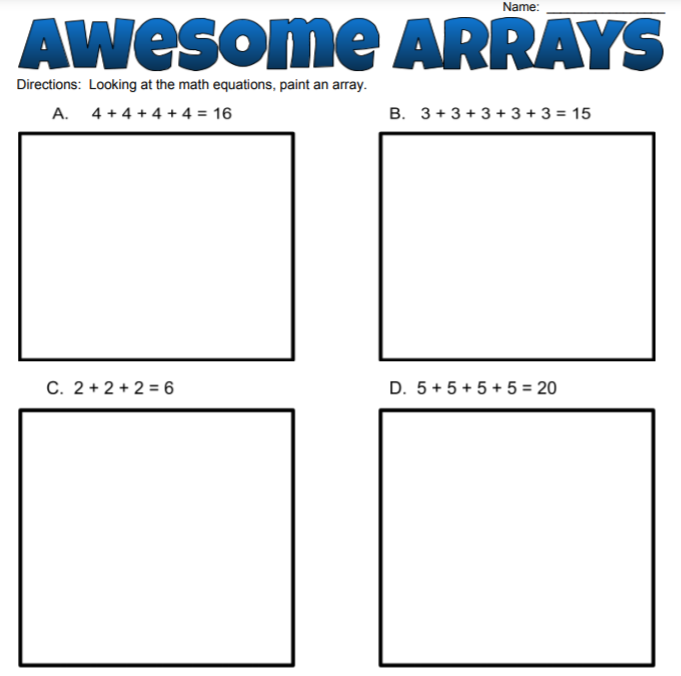
Students will model arrays by painting them based on repeated addition equations.

Students will model arrays by painting them based on repeated addition equations.
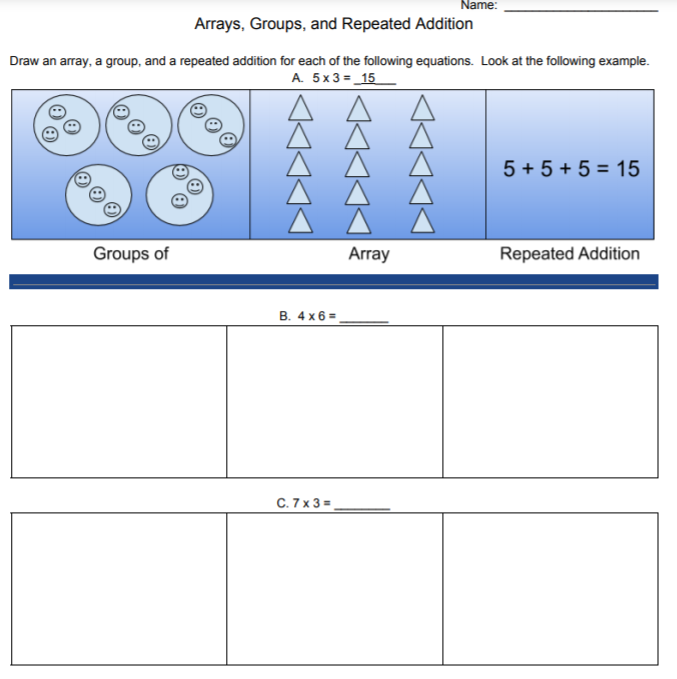
Students will demonstrate their knowledge of multiplication by using strategies like groups of, arrays, and repeated addition. They will model each one of seven problems.
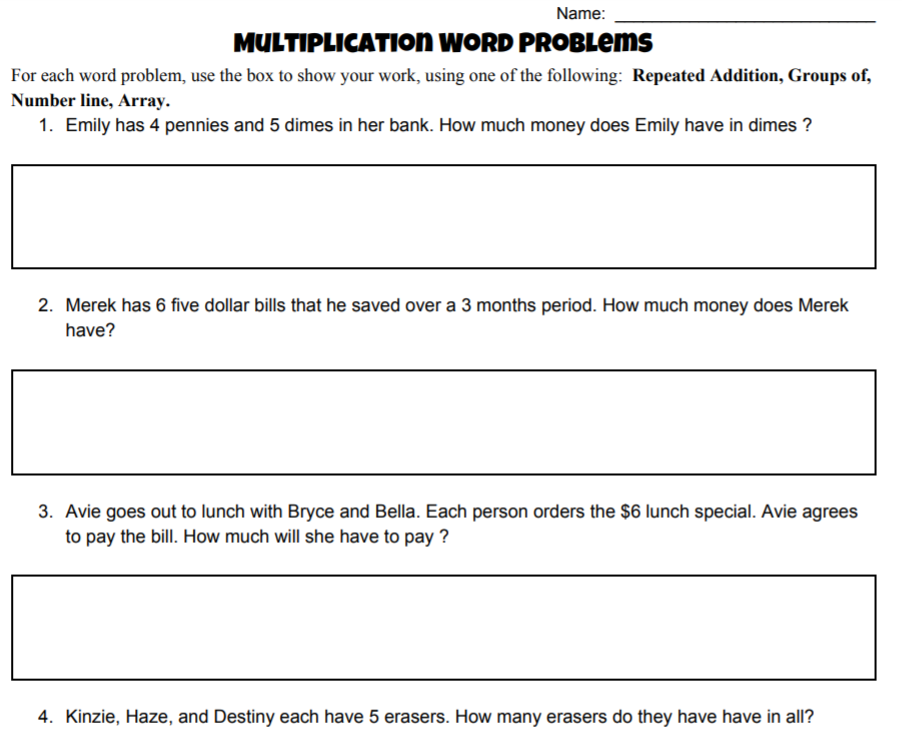
This is a two-page worksheet that has 5 multiplication and 5 division word problems. Students have room to show their work using methods such as repeated addition, repeated subtraction, groups of, equal groups of, and arrays.
If you use the Google Doc version you can change the names to names of your students.
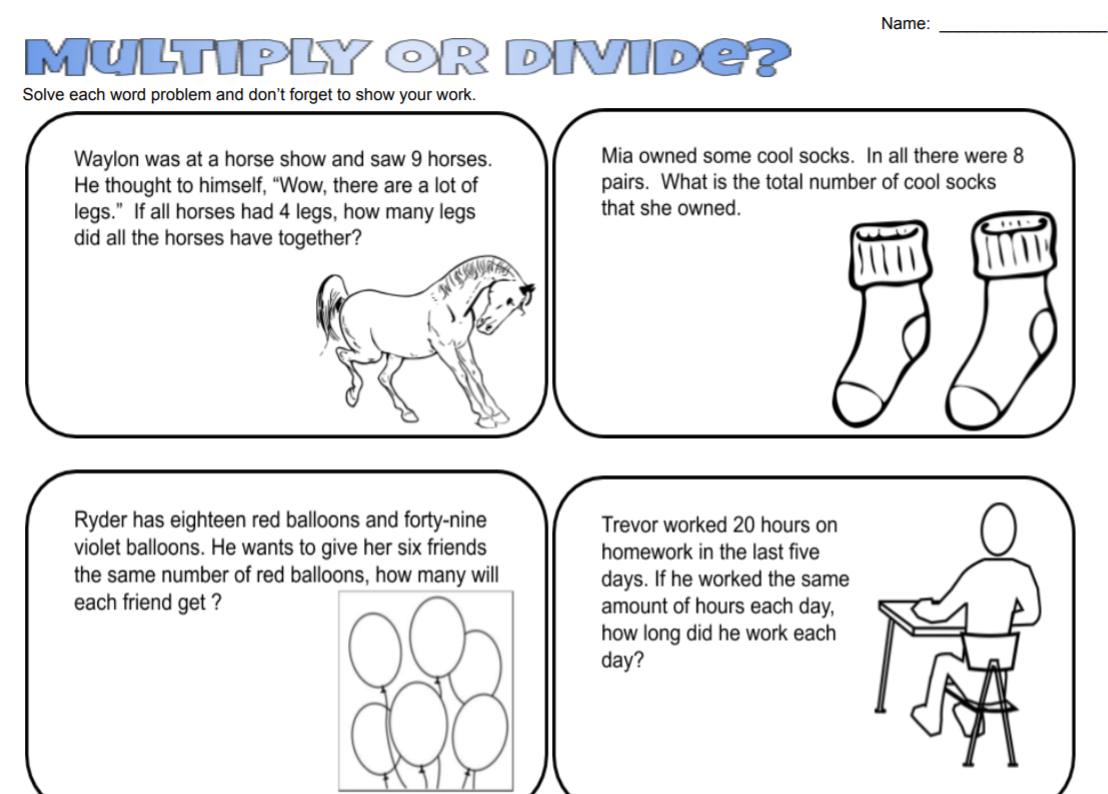
Students will solve 8 multiplication and division word problems. They are given room to show their work.
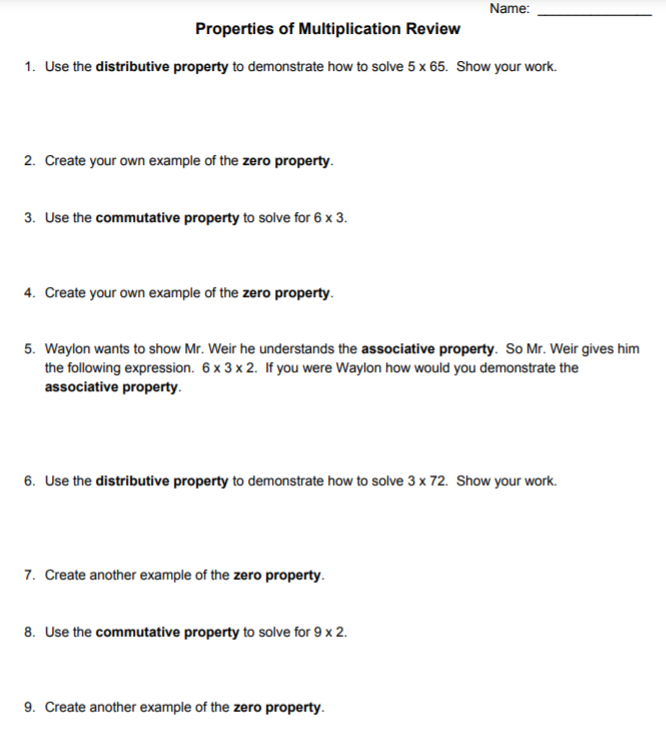
This is a worksheet that will reinforce the properties of multiplication. There are questions about the distributive property, the zero property, the commutative property, the associative property, and the identity property.
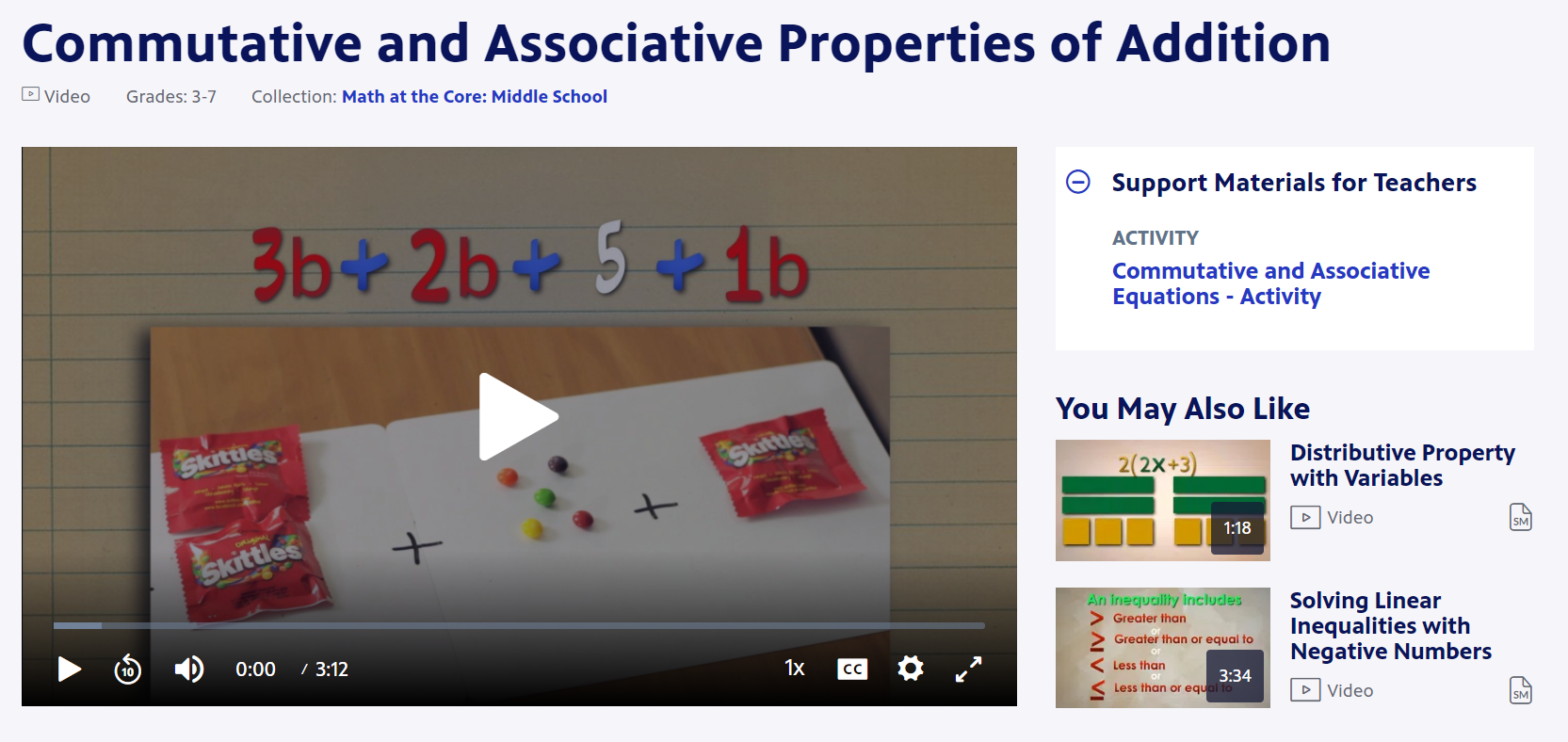
This website gives a great example of using the commutative and associative properties of addition using Skittles. There is a video available that will help demonstrate successful implementation.
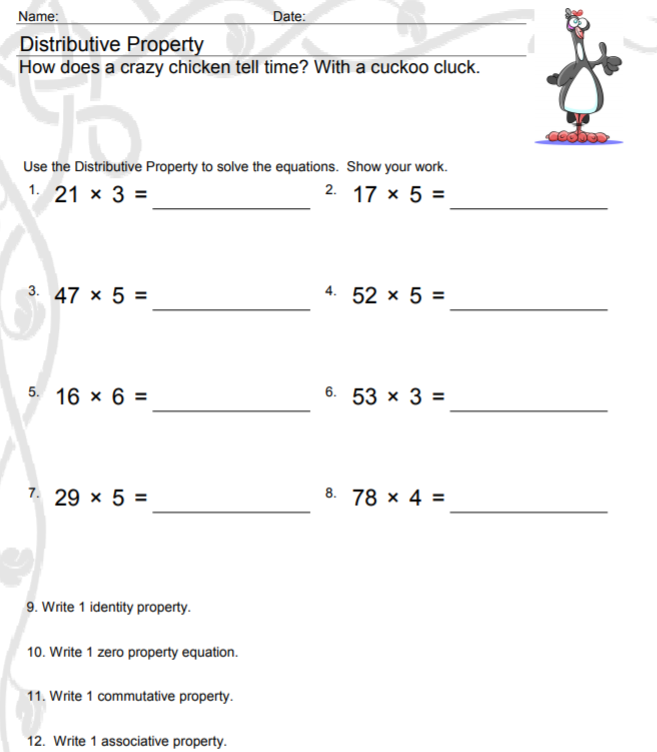
Students will find the product using the distributive property. There are also 4 questions that review the identity property, the zero property, the commutative property, and the associative property.
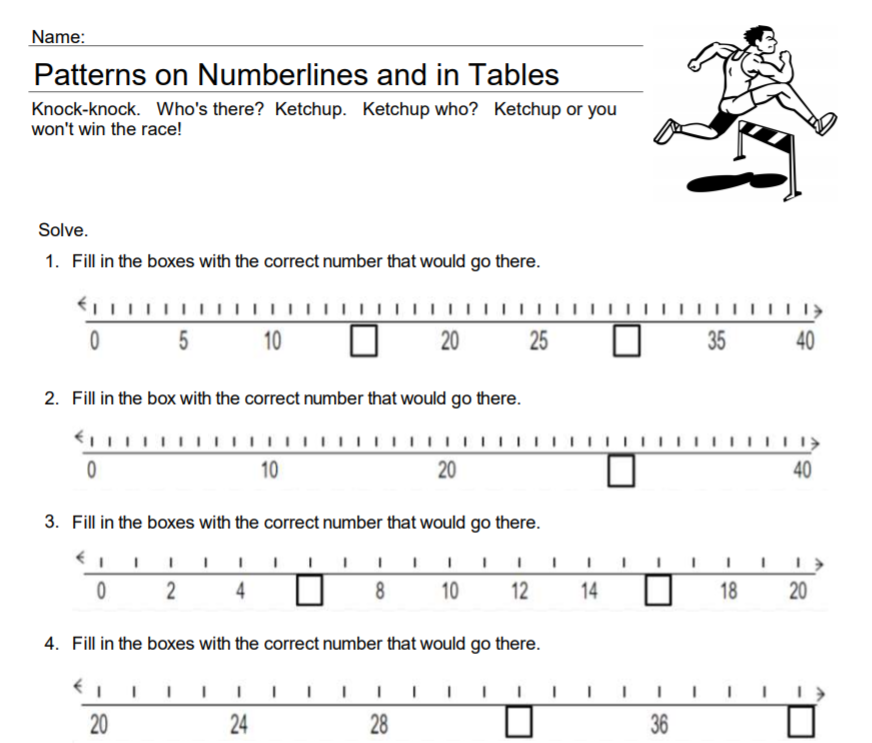
Students will find multiplication and addition patterns found in number lines and in tables.
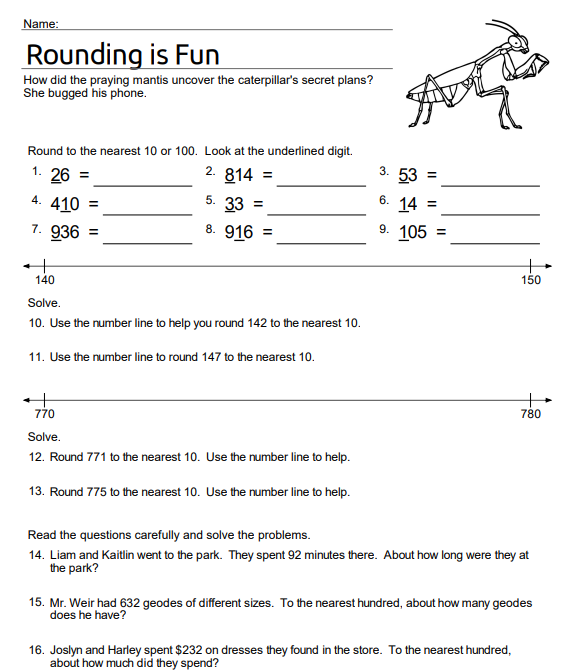
A third-grade worksheet designed to reinforce rounding numbers to the nearest 10 and nearest 100. It included 3 word problems, 4 questions using a number line, and a mix of rounding to 10s and 100s.
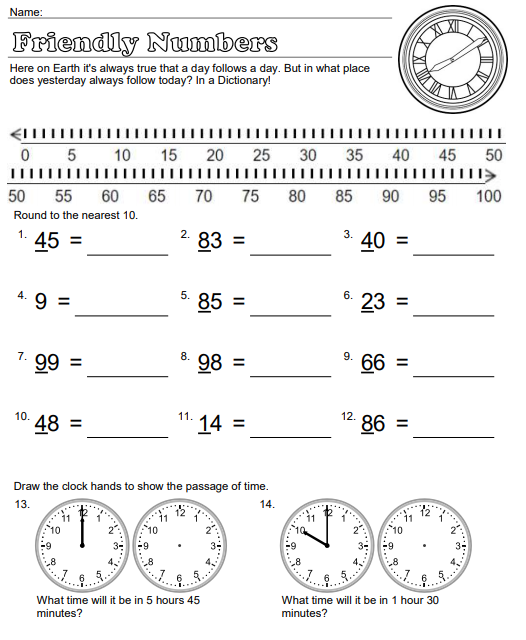
Students will practice rounding numbers to the nearest 10. Two number lines are included for reference as well as two elapsed time problems for students to practice.